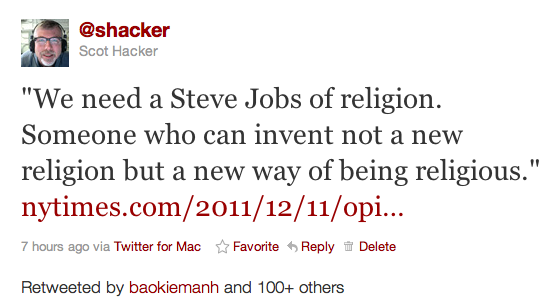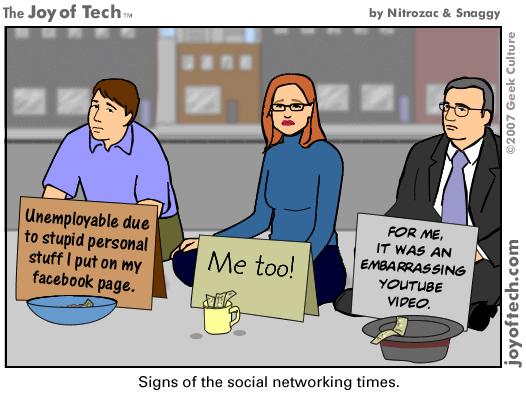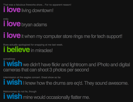
I’ve been caught up in a protracted debate with Flickr users recently over the question of whether those stupid “Award Codes” amount to spam. Ended up making a survey and writing a piece for Medium:

Tilting at windmills for a better tomorrow.
A month ago, I decided to take a mental health break from Facebook. Between the Cambridge Analytica mess, the cognitive pressures of always trying to juggle half a dozen ongoing conversations, and a creeping sense of “opinion exhaustion” (tired of my own and everyone else’s too), something had to give.

Winter rains pouring over the cliff into the sand at Alamere Falls, Pt. Reyes
The timing was good, and necessary. Over the past month, I’ve gone through one of the most intense work-stress periods of my life, so leftover mental energy was at a premium. When I did have time to unwind, I replaced the usual Facebook time with attention to platforms I knew were great (but very different) – Quora, Reddit, Twitter, and an endless supply of news and blogs aggregated via Feedly. All of them were interesting in their own ways, I was missing something crucial – what Kottke calls “ambient humanity“:
It is psychological gravity, not technical inertia, however, that is the greater force against the open web. Human beings are social animals and centralized social media like Twitter and Facebook provide a powerful sense of ambient humanity — the feeling that “others are here†— that is often missing when one writes on one’s own site. Facebook has a whole team of Ph.D.s in social psychology finding ways to increase that feeling of ambient humanity and thus increase your usage of their service.
Kind of hard to put my finger on why things feel so different outside of the Facebook bubble. Sure there are a zillion people having interesting conversations on other platforms, and I’m more than comfortable jumping in a pool with strangers, but the discussions are like drive-bys — I don’t feel invested the same way I do with people on Facebook. There’s something qualitatively different about talking things through with people you know or have known, compared to leaving one of a thousand comments on a topic with a bunch of random humans.
And there’s a level of civility on Facebook that I am not finding anywhere else. We are, for the most part, polite with people we actually know, and sadly, way too often rude with strangers.
Then there’s the news aggregation aspect. I found interesting content everywhere, of course, and wandered into great threads all over the place, but haven’t been able to shake the feeling that Facebook is not only great at social, it’s also among the best at news aggregation. Twitter is too noisy, even with tuning. Quora really isn’t about news. Reddit can be about news if you use it that way, but I find it much better for surfacing random stuff than for seeing what’s going on the world today/now. A dedicated RSS reader (I use Feedly) is right up there with Facebook, but feels “cold” in comparison.
But wasn’t this exactly what I was looking for — a break from the continual pressure to engage? If I so much as look at Facebook, I’ll post or comment. And when someone responds, I’m obliged to return and continue the conversation (you can’t just ignore a friend when they’re talking, right?). Outside of Facebook, that pressure vanishes. It’s exactly what I wanted, but it felt… empty somehow. The “ambient humanity” was missing.
There was a huge benefit to getting out of the Facebook bubble for a while — I felt and became a calmer version of myself, which allowed me to be more focused on the work stuff. There’s something about Facebook that seems to amplify outrage. “If you’re not outraged, you’re not paying attention.” Now more true than ever, and Facebook does make me feel more “in touch” than any other platform, but here’s the thing: Outrage is a drug. However justified your outrage may be, however much this messed-up world is pissing you off, this remains true: Start down the outrage path, and pretty soon you’re subconsciously looking for things to be outraged by, taking cues from your tribe on the daily outrages, dwelling on outrage, going to sleep and waking up with outrage.
The paradox is that if you want to stay aware, you’re going to be outraged. But continuous outrage is a super-unhealthy state of being. Ditch Facebook for a while and tell me you don’t feel the difference. It’s lovely to check out of that hotel for a while.
I had intended to do a lot more blogging this month, but didn’t, because you know, work. I still want to. But paradoxically, I find myself longing for this month to be over so I can return to Facebook. Weird, right?
Came across what I thought was an interesting piece in the New York Times, Americans: Undecided About God?, about the rising percentage of Americans who declare their religious/spiritual affiliation as “None” but who still feel a personal need for the connectedness that organized religion brings. In it, the author (Eric Weiner) made the perhaps too-flip remark:
“We need a Steve Jobs of religion. Someone who can invent not a new religion but a new way of being religious.”
The article was about a lot of stuff, and the Steve Jobs reference was just an aside, an analogy. But that’s the bit I quoted in a Tweet …

not because I necessarily agreed or disagreed, but because I thought it was an intriguing thought. Nothing more, nothing less. What happened next was an interesting lesson in just how little attention people pay, and how ready people are to unload half-cocked thoughts, work from assumptions, and to have loud opinions without bothering to actually, you know, read. Because a few minutes later, Tim O’Reilly retweeted the quote to his 1.5 million followers, and the switchboard lit up.

I’ve stitched together a bunch of screenshots to show what the stream looked like, which is quite amazing (see below).
Continue reading “1.5 Million Twitter Users on “A Steve Jobs of Religion””
 As if managing Facebook and Twitter wasn’t nuts enough, I’m now totally hooked on Google+. The sooner all my friends migrate from Facebook to G+, the better. Not that I expect that actually to happen, but I wouldn’t mind :) I’ve always preferred Twitter over Facebook because of its public nature (a well-curated Twitter firehose has a much higher information quotient than a Facebook stream), but Google+ cranks that equation up a notch by giving you the perfect combination of public and private, without Twitter’s character limitations. In a nutshell:
As if managing Facebook and Twitter wasn’t nuts enough, I’m now totally hooked on Google+. The sooner all my friends migrate from Facebook to G+, the better. Not that I expect that actually to happen, but I wouldn’t mind :) I’ve always preferred Twitter over Facebook because of its public nature (a well-curated Twitter firehose has a much higher information quotient than a Facebook stream), but Google+ cranks that equation up a notch by giving you the perfect combination of public and private, without Twitter’s character limitations. In a nutshell:
Oops, that was eleven. Want an invite? I’ve got 150 to pass around. Have a mint, they’re free!
 Loose notes from SXSW 2010 session by social network researcher danah boyd: Privacy and Publicity
Loose notes from SXSW 2010 session by social network researcher danah boyd: Privacy and Publicity
Just because people put info in public places doesn’t mean it was meant to be aggregated. Just because something is public doesn’t mean people expect it to be publicized.
What people mean by privacy is more complicated than what can be summarized in a sound bite. A conversation with a friend could be spread by that friend. *Trust* is what allows us to go forward with the conversation. We don’t always navigate privacy well.
I’m puzzling over the recent brouhaha regarding Facebook’s changes to their privacy policy. To be clear: I’m not puzzling over the changes (though they are confusing to the user who just wants to use the service instead of thinking about its internal minutia) – I’m puzzling over the concern about them.
 Blogs are 100% public. Twitter is 100% public. Posting on newsgroups and forums is 100% public. The web in general is a public space. I’m wondering WHY there are such dramatically different expectations on Facebook than everywhere else. Fine-grained control over exactly who gets to see exactly what? All of this comes down to a single problem: Millions of people apparently want to have a web presence and yet be private at the same time. Everywhere else online, it’s one or the other.
Blogs are 100% public. Twitter is 100% public. Posting on newsgroups and forums is 100% public. The web in general is a public space. I’m wondering WHY there are such dramatically different expectations on Facebook than everywhere else. Fine-grained control over exactly who gets to see exactly what? All of this comes down to a single problem: Millions of people apparently want to have a web presence and yet be private at the same time. Everywhere else online, it’s one or the other.
For me, it’s simple: If what you have to say shouldn’t be said to the whole world, then don’t say it online. In other words, the basic assumption is wrong to begin with. Facebook is trying to give you the sense that you can post online and control your privacy at the same time. It doesn’t work.
Actually, this problem isn’t limited to the web. When you walk down the street, you’re on public display. You don’t pick your nose in public because… well, you just don’t. You don’t need to be told that that’s something you do in private. If you have something private to say to someone, you whisper in their ear, or you call them. Or you email them. Don’t post it where others can see it.
The idea that I should be able to play online but not have to worry that my thoughts are completely public just seems… unrealistic. How many stories have you read about people being fired or worse over comments they’ve made on Facebook? Did their privacy settings protect them? No – things get out. The problem is not Facebook’s new privacy settings, but an epidemic of oversharing. It’s a problem that should be solved the same way we solve it in the real world – by being discrete – not by adding more dials and levers to our interactions.

Then there’s the question of reach. In general, people want to be heard. They pay close attention to the number of Facebook Friends or Twitter followers they currently have. Bloggers watch their traffic logs obsessively. Why? Because they want their thoughts to be heard as widely as possible. Guess what gives your thoughts the widest possible reach? Completely open platforms with no concept of privacy, like Twitter, blogs, and forums. In those spaces, it’s up to the user not to broadcast things they don’t want the whole world to see.
I’m personally glad that Facebook is gradually nudging users to share more content publicly, putting the brakes on this expectation that people can post online but not be public. When was the last time a Facebook post showed up in your Google search results? OK granted, I wouldn’t want most Facebook posts polluting my search results (there’s a whole lot of noise out there), but there’s also a lot of great content locked away behind the “privacy” firewall that really should be part of the public web — which is built on concepts of openness and transparency.
The fact that only people who “friend” me can see my content on Facebook is an annoyance to me, not a feature I cherish and wring my hands over. My dream “privacy” preference for Facebook would be a simple checkbox option reading “I acknowledge that I’m writing stuff on the web. Treat my content as such.”
Update 01/04: In an interview in front of a live audience, Facebook founder Mark Zuckerberg says if he were starting all over again, he’d make everyone’s information public. Because that is the “social norm.”
 Watched an interesting presentation by Robin Sloan of current.tv today, nice coda to last night’s talk by Chris Walton of the BBC. Both networks have harnessed the power of user-generated content in ways that go way beyond the casual contribution – BBC has an entire bureau (“hub”) of editors tracking, databasing, fact-checking, and processing cell phone photography, comments on beeb stories, email messages, etc., all now a staple of their “normal” news gathering process.
Watched an interesting presentation by Robin Sloan of current.tv today, nice coda to last night’s talk by Chris Walton of the BBC. Both networks have harnessed the power of user-generated content in ways that go way beyond the casual contribution – BBC has an entire bureau (“hub”) of editors tracking, databasing, fact-checking, and processing cell phone photography, comments on beeb stories, email messages, etc., all now a staple of their “normal” news gathering process.
The idea behind current.tv was always to be UGC-focused, but many didn’t think it had legs. It has, it’s profitable, and it’s good. The relationship between their web and TV properties is total symbiosis – the web acts like a catch basin, accepting UGC from all comers and posting most of it. Editors squeeze and condense out the best of that into the content stream that feeds the TV network. Brave new world.
In passing, Sloan showed a mesmerizing web experiment called Twistori that sifts and filters key words from Twitter streams. Sit and watch the world of love/hate/think/believe/feel/wish go by. The public mind on parade. Weird and kind of wonderful (and strangely depressing).